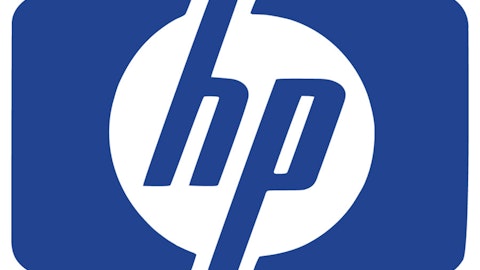We have seen a number of insider purchases at Molycorp, Inc. (NYSE:MCP) recently (see insider purchases at Molycorp). The largest of these, a purchase of 2.5 million shares by director Ross Bhappu’s Resource Capital at an average price of $10/share, represents a substantial amount of confidence from a major holder of the stock (Resource Capital has been a large private investor in Molycorp, Inc. for some time). The fund was joined by other insider buying: President and CEO Mark Smith directly purchased 50,000 shares, and the company’s CFO as well as another Board member added shares as well. This drew our attention because on a statistical basis copying insider trading tends to be a profitable investment strategy, especially when multiple insiders buy. In theory, this is because insiders already have a lot of exposure to the company’s fortunes and give up potential to diversify their portfolio when they buy additional stock. Furthermore, Molycorp currently trades at about $9.50 per share- it has dropped in price since these insiders bought the stock, so investors have an opportunity to buy it at a discount to the point where insiders thought it was a good value.
Molycorp, Inc. mines and sells rare earth oxides, alloys, and metals. These compounds are used for a variety of functions such as high technology, clean energy, and defense; Molycorp offers an alternative to a market which generally favors Chinese producers. The stock has fallen 62% so far in 2012, and is down 82% from a year ago. This downward momentum is troubling, but perhaps the consensus buying by insiders serves as a signal that its fortunes are about to turn around. The company actually increased its revenue 5% in the second quarter compared to the same period in 2011, but costs rose dramatically and Molycorp reported a $67 million loss compared to earnings of $49 million in the second quarter last year. This was due to decreases in commodity prices, which nearly wiped out revenue gains from production while the company was still forced to pay higher expenses as a result of the increased volume.
Wall Street analysts also think that the stock has been hit hard enough: forward earnings estimates for Molycorp imply a P/E of 16 and a five-year PEG ratio of 1. The stock is remarkably sensitive to the broader market on a statistical basis, with a beta of 3.9, so investors who are generally bearish might want to ignore any value potential in the stock for the time being.
In addition, hedge funds took an interest in Molycorp over the course of the second quarter. Blue Ridge Capital, managed by Julian Robertson’s former second-in-command at Tiger Management John Griffin, initiated a position of 2.2 million shares in the stock (find more stocks Blue Ridge Capital is buying). Another Tiger Cub, Philippe Laffont, manages Coatue Management and this fund left its position in Molycrop unchanged at 1.1 million shares between April and June (see more of Philippe Laffont’s stock picks). Coatue had increased its stake in the company in the fourth quarter of 2011. Aletheia Research and Management reduced its position but still reported owning 2.6 million shares at the end of June.
We would consider Molycorp against peers such as Freeport McMoRan (NYSE:FCX) and Turquoise Hill Resources (NYSE:TRQ), which focus on copper and gold mining but also produce other minerals; uranium miner Cameco (NYSE:CCJ); and palladium and platinum miner Stillwater Mining (NYSE:SWC) with the caveat that much of Molycorp’s future depends on prices of rare earth compounds. These companies trade at a wide range of forward earnings multiples: 7, 50, 15, and 20 respectively, which at least tells investors that Molycorp is not unusually priced compared to analyst expectations. Investors should consider the company based on the strength of the insider buying if they are patient enough to not panic at any continued declines in the stock price that might result from its current negative momentum.






